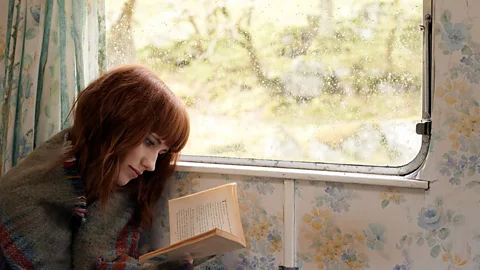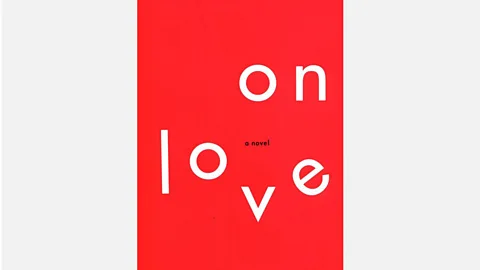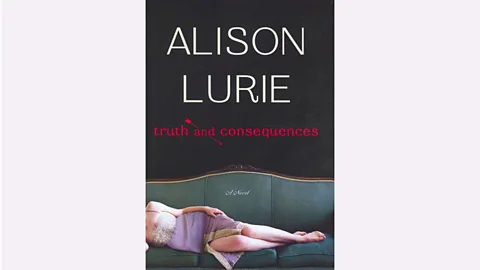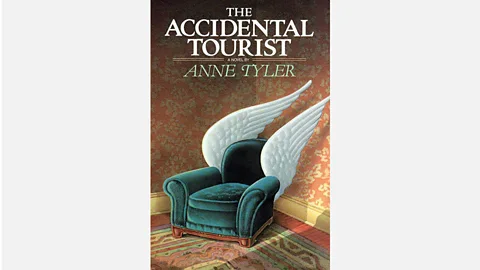Feeling lovesick? These books can help
 Getty
GettyLiterary agony aunt Hephzibah Anderson tackles the topic of love in its multiple forms. She recommends a selection of books to soothe readers’ tortured souls.
Dear Textual Healing,
Unrequited love is not the only issue that 10th grade girls like me go through, though it is pertinent. I am an avid reader with a love for modern teen fiction as well as 17th, 18th, and 19th-Century historical fiction; particularly drama at royal court. I have close friends, and quite an obsession for a certain 12th grade boy who barely notices me. Please recommend some literature that I would enjoy... I have ravaged the nearest libraries and run out of iTunes money for iBooks.
Thank you,
Sarah
Dear Sarah,
Unrequited love isn’t all that writers fret about either, but it does happen to be the driving theme – and inspiration – behind a great many of their most enduring works. Just think about it: Cyrano de Bergerac yearns for Roxanne, loyal Biddy pines for Pip in Great Expectations, and as for the eponymous hero of Goethe’s semi-autobiographical The Sorrows of Young Werther, so lovesick was he for the already engaged Lotte that he became a model for overwrought young men across 18th Century Europe. They even began dressing like him.
You sound a voracious enough reader to have already discovered plenty of these lovelorn literary characters for yourself; my point is that when it comes to drama, there’s nothing quite like unrequited love. The most intense of all love’s varieties, it’s torturous and yet oddly pure, too. You never get close enough to that icy beauty or 12th grade boy to discover their disillusioning flaws – that they’re really very self-absorbed, or don’t share your enthusiasm for good books. Unrequited love is idealised love; it will by definition never be subjected to the strains of ho-hum reality. When love is reciprocated in literature, it’s often followed by the words ‘the end’. As bookworms then, we’re primed to experience just the kind of crush that seems to have seized you.
Where am I going with this? Well, my initial advice might sound odd. Your friends will already have told you – quite accurately, I promise – that your crush’s failure to notice you is his loss, and other than being fully yourself, I don’t think there’s anything extra that you should be doing to catch his eye. But I suspect from those literary favourites you mention that you appreciate drama, so I’m going to suggest you try, if you possibly can, to enjoy your infatuation for what it is. There’ll be plenty of time later for other, more practical kinds of love. And besides, you’re following in a distinguished literary tradition. WB Yeats is only one author to have spun literary gold from his devotion to a determinedly platonic friend (her name was Maud Gonne).
Because novels can raise our expectations of love – sometimes fatally, just think of romance-addict Emma Bovary – I recommend Katherine Heiny’s new short story collection, Single, Carefree, Mellow, which brings love down to earth with a wry bump. Even its depictions of illicit, extramarital amour are anchored in the domestic. There’s one particular story, How to Give the Wrong Impression, which is told in the second person singular and describes a girl who’s in love with her roommate, Boris. Boris loves her back just not like that, as he’s forever demonstrating. For instance, at Christmastime he presents her with a framed poster of the four major food groups. “You amuse yourself by trying to think of one single more unromantic gift he could have given you,” our narrator sighs.
 Grove Press / Atlantic Monthly Press
Grove Press / Atlantic Monthly PressYou should also reach for philosopher Alain de Botton’s pocket-sized modern classic On Love. A charming first novel, it charts the course of a romance from the couple’s meet-cute – aboard a Paris to London flight, no less – to his hatred of her taste in shoes and her eventual drift away. As primers on the dos and don’ts of courtship go, this one’s a treat and only mildly neurotic.
Finally, to stop you becoming too cynical too young (save Dorothy Parker for college), two great novels to keep you believing in romance while you wait for your would-be paramours to grow up. Rose Tremain’s Music and Silence is set in Copenhagen in the 17th Century, where love leads an angelic-looking lutenist into the thick of deadly dynamics at the royal court. AS Byatt’s Possession, meanwhile, twins the mystery of a forgotten romance between two Victorian authors with a stuttering, modern-day relationship that springs up between two rival literary critics and accidental sleuths. So fixated are they on their reading, they almost fail to notice one another.
Dear Textual Healing,
I divorced three years ago after being married for 24 years. My early life with my ex was one of the best times of my life but my marriage turned awful after we had kids. I stuck it out until the kids came out of high school, thinking things might get better and not wanting the kids to grow up in a broken home. I’ve been very happy since the divorce.
A year into my single life I met an amazing woman and fell in love. But I did not trust the feeling. In fact it felt damned uncomfortable. She was someone I thought I could spend the rest of my life with but I did not trust the feeling, and could not until enough years would have ed that I could be confident that I know who she really is. She was not willing to go so slow. We broke up. How do I become able to trust love again
B
Dear B,
The surprise here is that you came as close as you did to committing to another serious relationship so soon after your divorce. But while the age of years can heal emotional wounds, literature is full of cautions about time’s limitations in of helping us truly know the objects of our affections.
Gillian Flynn’s Gone Girl has spawned an entire mini-genre of books turning on the idea that you can share a life with another person without ever truly knowing what they’re capable of. Alison Lurie’s Truth and Consequences presents a less sensationalistic portrait of that same predicament. Jane and Alan Mackenzie are the perfect couple – he a middle-aged architecture professor, she a younger college . Within their marriage, they’ve each taken on distinct roles, he as the charming star, she his eager acolyte. That all changes when, showing off to junior colleagues on the volleyball court, Alan injures his back. Flat out on the couch, he’s utterly dependent on Jane. In alternating chapters, the novel toggles between her point of view and his to chart their subsequent marital breakdown, nudged along by the arrival of a new couple on campus.
 Penguin Books
Penguin BooksRather than discouraging you, this should make you feel better about the failure of your own marriage. People change over time, and there’s no bigger catalyst for that than parenthood and its accompanying challenges. Unfortunately, this does also mean that if you’re looking to thoroughly protect yourself from future hurt, you’re going to be spending a lot of time on the sidelines of your own life. No character better exemplifies the pitfalls of that approach than Macon Leary, The Accidental Tourist – and hero – of Anne Tyler’s 1985 novel.
Macon has suffered terribly and when his woes are compounded by his wife’s decision to move out, he withdraws further from the world, writing travel guides for people who dislike travel and insulating himself with careful routines. Into this scenario dog-trainer Muriel explodes like a grenade. Ultimately, Macon will be forced to choose between familiarity and the volatility of messy, disruptive, glorious ion.
 Vintage
VintageAlong similar lines, Julian Barnes’ Man Booker-winner, The Sense of an Ending is an elegant, twist-filled cautionary tale of, among other things, a man who plays it too safe and risks too little.
Unhappiness can become a habit and it takes courage to let yourself be otherwise, as Alain de Botton’s protagonist (see above) discovers when he’s beset by ‘anhedonia’ – the terror arising from the threat of complete happiness. To help navigate this, I’m prescribing Brené Brown’s Daring Greatly, the book that sprang from her cult TED talk. Making yourself vulnerable, she insists again and again, is part of the deal – until you’re able to do that, you won’t know love’s greatest rewards.
That you’re wary of love is understandable; that you haven’t fallen out of love with it is to be celebrated, and what better way than to let yourself fall? If you still need encouragement to seize the day, look no further than David Nicholls’ One Day, whose protagonists – he more consistently than she – take far longer than anyone reasonably should to realise that they belong together.
These books can’t persuade you that loving is ever without risk but they should help you have confidence in your feelings and the courage to see what kind of a future they might lead to. As Tennyson would tell you, ‘’Tis better to have loved and lost than never to have loved at all’. Then again he would say that, being a poet.
Send an email to [email protected] describing a problem in your life that you need some help with. Hephzibah Anderson will prescribe the books that offer the best advice for your situation. Submissions should be 200 words or fewer and may be edited prior to publication.
